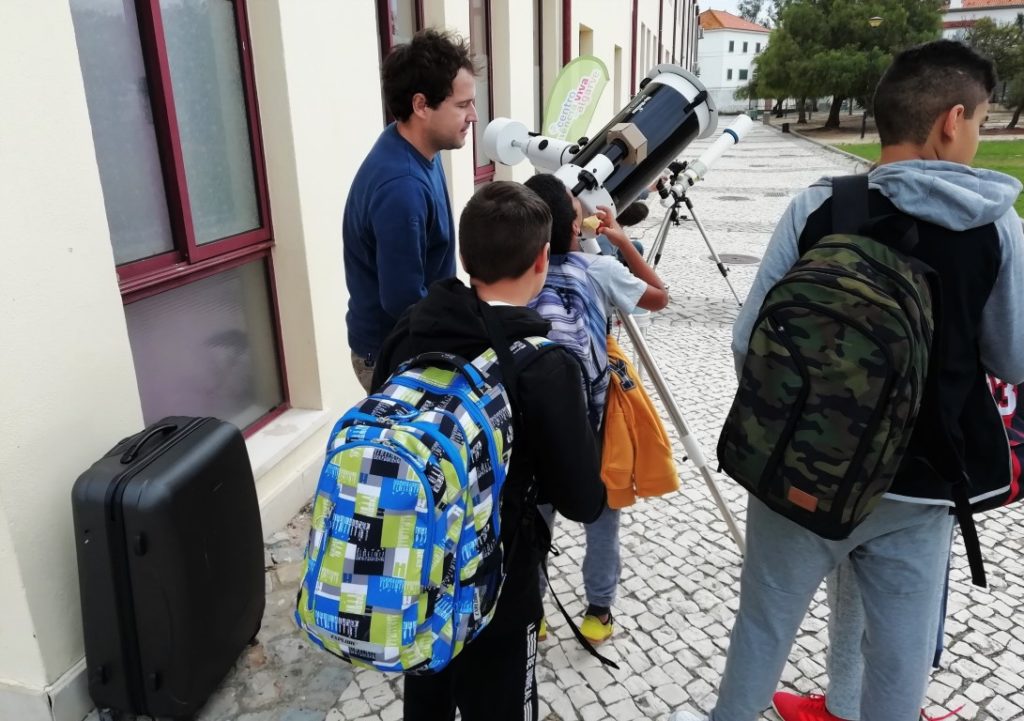Students from various schools of Faro observed, on the afternoon of this Monday, 11 November, the transit of Mercury, a phenomenon that will only be repeated in 13 years.
The observations, which took place at the EB 2,3 School in Santo António, resulted from a partnership between the Centro Ciência Viva do Algarve (CCVAlg) and the João de Deus School Group (AEJD).
This initiative was supported by the NASE group of the IAU (International Astronomical Union) and by the EAAE (European Association for the Teaching of Astronomy), and was part of the week of the “IAU Astronomy Day in Schools” (iau-100.org/astro-day -schools), within the scope of the centenary of the IAU, and had the dynamization of collaborating astronomers from CCVAlg Filipe Dias and Luís Garrido and Physics and Chemistry professors from the AEJD.
In the observation were teachers and students from various schools from the various groupings of schools in Faro.
A transit of Mercury occurs when the planet Mercury passes directly (transit) between the Sun and a higher planet, becoming visible against the solar disk, obscuring a small portion of it. During transit, Mercury appeared as a small black dot in front of the solar disk, moving very slowly.
A typical transit takes several hours. This lasted from 12:35 to 18:04, which prevented the observation of its end in Portugal, as the sunset occurred at 17:27.
Bad weather also didn't allow for good observation in the initial phase due to clouds, but observation turned out to be possible during most of the traffic.
Mercury transits occur about 13 or 14 times a century, always in the months of May or November, being more frequent than those of Venus because Mercury is closer to the Sun and therefore orbits more quickly.
Mercury transits were important in establishing the dimensions of the solar system during the XNUMXth century.
In the present millennium there had already been three transits of Mercury: on the 7th of May 2003, on the 8th of November 2006 and, finally, on the 9th of May 2016.
The next one will take place on November 13, 2032.



















Comments